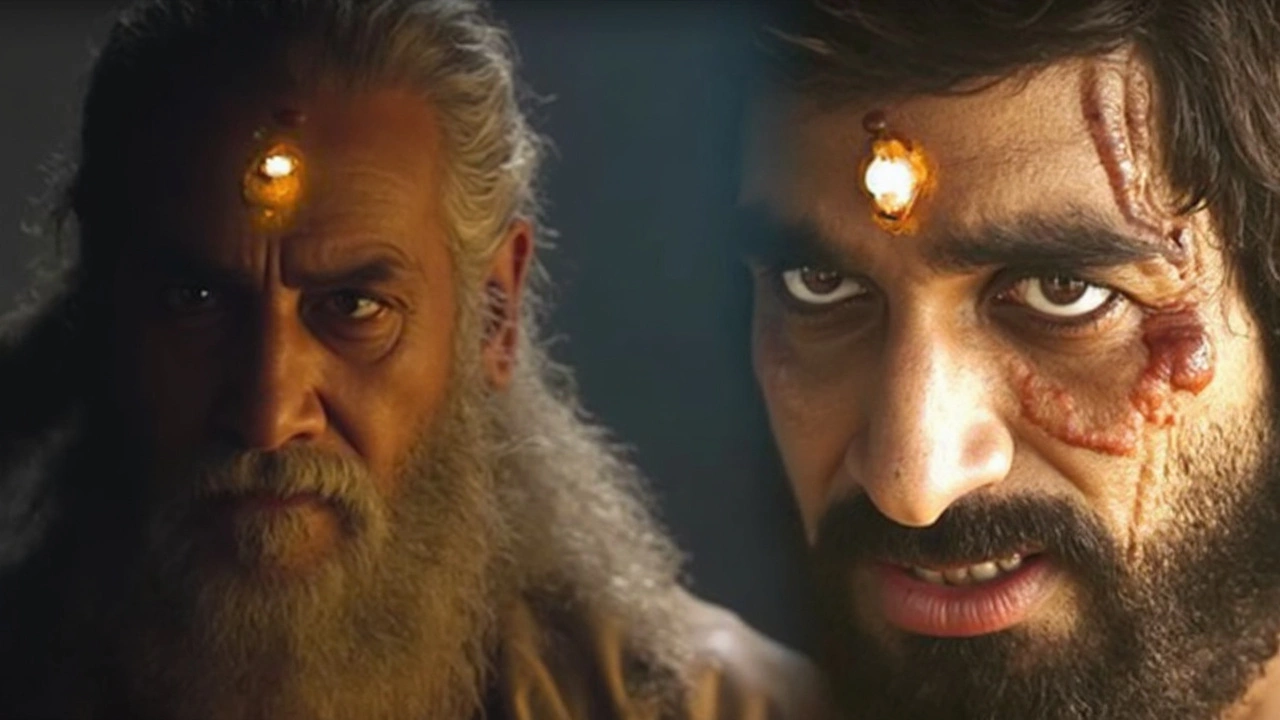Ashwathama’s Curse: The Immortal Warrior’s Agony in the Mahabharata
 Jun, 8 2025
Jun, 8 2025
Ashwathama: Warrior, Outcast, and the Shadow of Immortality
The Mahabharata is filled with epic heroes and brutal choices, but few figures leave a mark quite like Ashwathama. Known as Dronacharya’s only son, his name sparks images of a mighty fighter, yet his tale is really a tragic warning about crossing moral lines—even when the world’s falling apart around you.
Ashwathama earned his place as a top commander in the Kaurava army, a man as skilled with weapons as anyone on the battlefield. But when the war’s tide turned against the Kauravas, Ashwathama stepped off the path of honor. What he did on a dark night after the war’s official end would change his fate forever. Furious at the Pandavas for his father's death, Ashwathama sneaked into their camp while everyone slept. He killed the five sons of Draupadi, thinking it would be revenge. But those kids weren’t his real enemies—they were only sons sleeping off a day’s fight. By attacking at night and killing the defenseless, Ashwathama broke every rule of fair warfare celebrated in the ancient world.
As if that wasn’t enough, Ashwathama later unleashed the Brahmastra, a terrifying, almost nuclear-powered weapon, with a mind to wipe out the Pandava lineage for good. But Krishna, advisor and protector of the Pandavas, stepped in. Krishna shielded Parikshit, the unborn child in Uttara’s womb, saving the family’s future.
The Curse Unfolds: An Immortal’s Punishment
Krishna’s judgment wasn’t just about revenge—it was about justice. Krishna cursed Ashwathama with immortality, but not the peaceful kind so many heroes crave. This curse meant wandering the world forever, carrying an ugly wound on his forehead. That wound, left from the removal of a prized gem, never heals and bleeds endlessly, reminding Ashwathama daily of what he did. No friends, no family, just endless wandering—physical pain mixed with loneliness. Death isn’t an escape for him. He’s stuck, living out the full consequences of his actions, doomed to remember his choices forever.
The Mahabharata’s audience didn’t get a happy ending for Ashwathama. Instead, his story became a living message: actions—especially fueled by blinded anger—carry a price even time can’t wash away. Some people in rural India still whisper that Ashwathama walks among us, quietly suffering, outliving generations.
The lesson hits hard—power, even in the hands of a noble or talented fighter, can destroy. Ashwathama’s desperate act, revenge at any cost, shatters not just his own life but marks him as a warning through the centuries. Krishna’s curse goes beyond pain or shame; it puts Ashwathama in a spot where he can’t escape the results of his choices.
When people talk about karma, Ashwathama’s fate is a prime example. The weapon was divine, the act horrific, and the punishment fits: he remains, immortal, but never at peace. For readers today, his journey is a powerful nudge that values like restraint and ethics matter—even in war, especially when it feels like nothing else does.